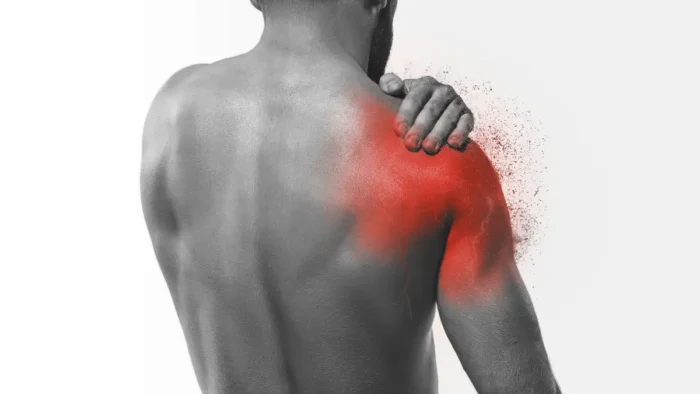The role of the criminal lawyer in these times has varied considerably. Although there is a widespread lack of knowledge of the functions that can develop, beyond the well-known defense before the courts of people who have committed – allegedly – a crime.
Below are 8 cases in which the intervention of the criminal lawyer is crucial or can be, depending also on their specialty or specialization.
The Procedural Penalty Lawyer (Defender or Accuser)
A criminal lawyer is a professional whose action is required by law to guarantee an effective deployment of the right to defend, before the court of law, an accusation of any crime in a criminal process.
There is no room for self-defense (without a lawyer) of an investigated or accused person. This is because knowledge of criminal and criminal procedural law is necessary to avoid situations of defenselessness. The intervention of the criminal lawyer is considered the guarantee to obtain a fair trial. This is because the evidence of discharge is traditionally brought to the process by the defense lawyer.
You need to make sure you go through the exercise of finding the right lawyers for you and use the no-fee free initial consultation to do that.
This classic facet of the criminal lawyer includes the assistance to the person investigated in his first police or judicial appeal until the trial and subsequent appeals. Here, they can be distinguished as cases of the intervention of the criminal lawyer:
Related: The Use of Technology in Criminal Law Investigations
1. Assistance at the police station
Occurs in case of arrest or subpoena, the first statement is crucial. The criminal lawyer will advise the client on the right choice. Choice related to what is the best option between giving a statement or exercising his right to remain silent.
2. Assistance in judicial dependencies
This assistance occurs as a result of previous detention or by judicial appeal after the complaint. Also, there can be a complaint that the criminal lawyer will advise the client in his statement before the Judge. Having access to the judicial file and the indications of crime that weigh against the investigated person, in addition to having their own arguments and evidence of discharge, thus recommending the best plot strategy.
3. Defender in the process
The criminal process has in its entirety various stages:
- investigation,
- intermediate, and, eventually,
- the oral trial (without prejudice to the system of resources).
The criminal lawyer is the professional who will intervene in all of them. He will try to enforce the defensive arguments and the evidence of discharge.
4. Filing of complaints
Analogously, any aggrieved person or victim of a crime has the right to lodge a complaint with the police or judicial authorities. To exercise the particular accusation in the process that derives from the crime, in search of the restitution or repair of their rights, including compensation to that there be the place because of the crime supported.
So, the intervention of the criminal lawyer will be analogous to that of the defender but trying to enforce. Precisely, the arguments and evidence of charge, in search of a greater satisfaction of the injured right of his client. Included here, in addition to assistance at the police station and court, the writing of complaints or complaints and the collection of evidence (expert reports, for example).
The Panelist Lawyer (Private Advisor)
It has happened in recent times that the figure of the criminal lawyer acquires an increasingly important role as a private advisor.
5. Prevention of “white collar” crimes
Natural persons normally seek the services of the criminal lawyer through other advisors such as:
- economists,
- taxpayers, or
- asset managers when carrying out certain private operations (equity investments, capital movements, the constitution of fiduciary instruments, successions) that may constitute specific circumstances like criminal figures (lifting of assets, money laundering, tax evasion).
In these last cases, the tendency to count on the advice of the criminal lawyer of the specialized offices in fiscal matters and wealth advice is also clear.
6. Prevention of economic crimes
But it is the companies and organizations that have proved most proactive, beginning to endow their Councils with criminal experts. The rise of Economic Criminal Law and the existence of corporate criminal figures (adoption of abusive agreements, breach of the rights of the partners), no doubt, as well as the birth of the criminal responsibility of corporations, are to blame.
Thus, at the time of writing a contract with suppliers, when making a strategic decision within a corporation or adopting a fiscal policy specifically, to give some examples, the criminal lawyer is the best prepared to decide that this or that conduct is likely to constitute a criminal figure. Especially, with the progressive typification of new crimes in line with the evolution of new forms of criminality (computer or cyberspace crimes, new forms of fraud, business-related crimes).
The Panelist-Analyst Lawyer (Due Diligence-Criminal Risks)
The aforementioned criminal responsibility of legal persons and the growing importance of Compliance Programs has set off alarms in the business world. And it is not that this has led to the birth of new crimes. But now organizations will respond to a lack of prevention in the commission of crimes by others.
7. Risk prevention in transactions, removals, and mergers
This rise of due diligence not only with regard to company personnel but also with third parties. They are business partners, suppliers, freelancers, or subcontracted companies, and even customers. Operations such as mergers or removals require analyzing the history of the absorbed company. Also analyzing the simple collaborations between brands or the provision of services. The criminal lawyer will contribute to the Due Diligence process. Especially his vision of the criminal risk in the event that it can be transmitted.
8. Prevention of criminal risks
Given the growing interest of organizations to adopt – and show – an ethical culture in the way of doing business, based on regulatory compliance, including criminal risks among those who value has given a preponderant role to the criminal lawyer. So, he has normally expanded his knowledge in matters such as Good Governance, Risk Management, and Compliance. Here, logically, its role will focus on the evaluation, analysis, and evaluation of corporate processes. All of that is according to the criminal types required of the legal entity.





